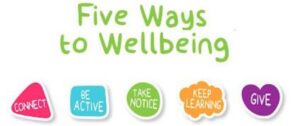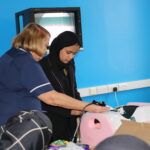- Voluntary, Community, Faith and Social Enterprise (VCFSE)
The Voluntary, Community, Faith and Social Enterprise (VCFSE) sector comprises thousands of small to large charitable organisations across the country. Data from the Charity Commission register indicates that volunteer numbers in the UK are estimated at over 3.46 million. It is estimated that in Lancashire and South Cumbria there are around 10,000 organisations providing a wide range of services including health and social care. There are approx. 350,000 regular volunteers and over 900,000 who have volunteered at least once. Volunteers come and go all the time so we are constantly in need of more volunteers whether an hour or two or much more. You can also volunteer in several organisations – you will always be welcome.
To find out more about volunteering in VCFSE organisations in your area it is best to contact the local Council of Voluntary Services (CVS) near you (see links below).
The VCFSE Alliance is a group made up of representatives from the VCFSE sector, Lancashire County Council, Health and Well-being Boards across Lancashire and South Cumbria. The role of the Alliance is to represent the VCFSE sector on the ICS Board and provide strategic leadership. Read more detail here
- NHS Trust Voluntary Services
NHS Trusts rely on regular support from volunteers to carry out a wide range of roles. There are five main NHS Acute Trusts in East Lancashire, Blackpool, Lancashire Teaching Hospitals, Morecambe Bay and Lancashire & South Cumbria Foundation Trust. Volunteers are recruited and deployed through Trust volunteer coordinators. On average the five NHS Trusts utilise around 1500/2000 volunteers combined total at any one time. To find out more about volunteering in NHS Trust Voluntary Services see links below.
- North West Ambulance Service (NWAS)
North West Ambulance Service have various opportunities to volunteer. Every day our non-emergency Patient Transport Service assists hundreds of people to attend a variety of medical appointments and this is supported by a dedicated team of volunteer car drivers. Volunteer Community First Responders are trained by the ambulance service and are allocated to certain emergencies in their local area alongside NWAS resources. Due to their proximity, they are often able to arrive first and save vital minutes in starting life-saving intervention. There is also a Patient and Public Panel to give members of the public a voice and the chance to have their views acted upon. The panel is made up of representatives from local communities, interest groups, the voluntary sector and partner organisations, and offers meaningful opportunities to influence improvements in our emergency, patient transport and 111 services. To find out more about volunteering in NWAS see links below.
- NHS Volunteer Responders (NHSVR)
In response to the Covid 19 pandemic NHSVR was set up very quickly by NHS England to provide transactional, task based support to existing VCFSE providers in health and social care using a digital App – Good Sam to quickly match volunteer responders to tasks such as shopping, prescriptions delivery, telephone befriending. The service is specifically for vulnerable people who are shielding. To find out more about volunteering in see links below.
- Local Authority Voluntary Services
There are twelve local authorities within Lancashire County Council and two unitary authorities: Blackburn with Darwen and Blackpool. The LAs each have a community hub to help organise their own volunteers – again a wide range of roles and work closely with the VCFSE sector to respond to community needs. It’s a great way to keep physically and mentally active, make friendships and put something back in to your community. A wide range of roles could be available from coastal beach clean-up to woodland rangers, volunteering with children through to the elderly, driving, reading, talking, shopping – the list could go on! To find out more about volunteering in Local Authority Services see links below.
- Lancashire Volunteer Partnership (LVP)
The Lancashire Volunteer Partnership (LVP) was established in 2016 between public services who wanted to provide one gateway into public service volunteering. Their aim is to make volunteering for public services rewarding and to provide opportunities for people to make a real difference in their local communities. By bringing these opportunities into one place and by working together they believe they can look after their volunteers better and allow them to use their skills for the benefit of all. From visiting people who may be feeling lonely or supporting those who are struggling to get out and about independently, to giving a carer some respite, volunteering alongside the neighbourhood policing teams as a Special Constable, at a children’s centre or as a cadet group leader. To find out more about volunteering in the Lancashire Voluntary Partnership see links below.








